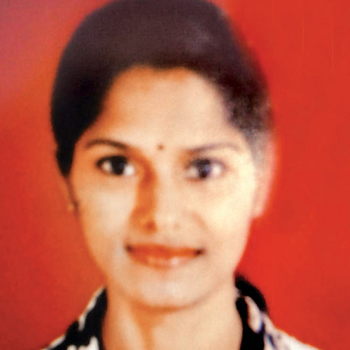 Mumbai, Nov 6: With the arrest of a gymkhana manager on Tuesday, the Chembur police claimed to have solved the mystery of the body parts of a woman that were found Chembur and Trombay last week.
Mumbai, Nov 6: With the arrest of a gymkhana manager on Tuesday, the Chembur police claimed to have solved the mystery of the body parts of a woman that were found Chembur and Trombay last week.
The police said Prabhakar Shetty (31), manager of Chembur Gymkhana, killed 36-year-old fashion designer Kanta Shetty and cut her body into pieces in the bathroom of his first floor flat at Subhash Nagar in Chembur with a sharp knife and dumped the body parts in Chembur and Trombay.
“We have booked Prabhakar under Sections 302 (murder) and 201 of the Indian Penal Code (IPC). He will be produced before the court on Wednesday,” said Prahlad Panaskar, senior police inspector of Chembur police station, adding that Prabhakar also showed the nullah at Shell Colony in Chembur where he dumped the head of Kanta.
The police are yet to trace the hands and the blood-stained knife. “During the interrogation it was revealed that Prabhakar and Kanta met each other two-and-half year’s ago on a train to Mangalore and they became close friends,” Panaskar said, adding that Kanta started pressurising him to marry her.
Fed up with the mental torture, Prabhakar decided to kill her. “On the night of October 29, Kanta visited Prabhakar’s flat. They had a fight. Then Prabhakar took her to the bathroom and slit her throat with a knife. He chopped her hands, legs and head and put them in four big polythene bags,” said the official.
The police said Prabhakar hired an autorickshaw and told the driver that he wanted to dispose of puja articles. He then reached Charai lake in Chembur at 9.45pm and dumped the torso concealed in polythene bags. Then he returned home in the same auto.
“Later, he hired another autorickshaw and threw the hands and legs in the mangroves in the Trombay creek and returned home. After that he took another rickshaw to throw the head in a Shell Colony nullah in Chembur,” the official added.
The police said the incident came to light on November 4 when the victim’s elder sister Suhasini Shetty lodged a missing person’s complaint at Sakinaka and suspected Prabhakar’s involvement.
The missing person’s descriptions matched with descriptions of torso and limbs of a woman found at Chembur and Trombay, respectively. The Chembur police rushed to the spot and interrogated Prabhakar Shetty. During interrogation, Prabhakar confessed to the crime.





Comments
Add new comment